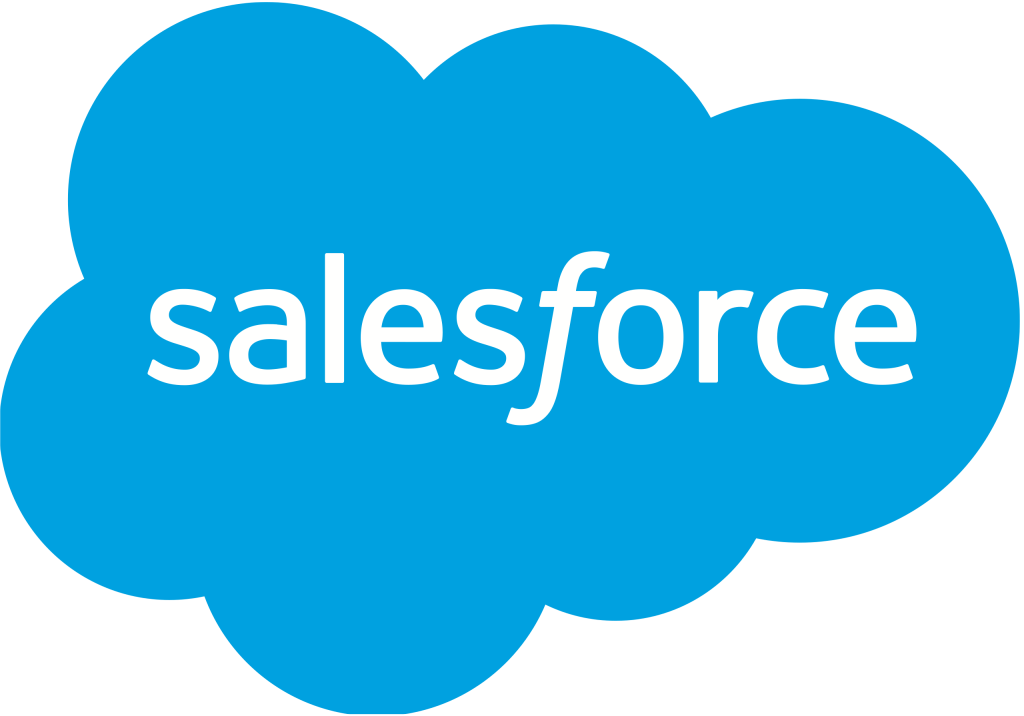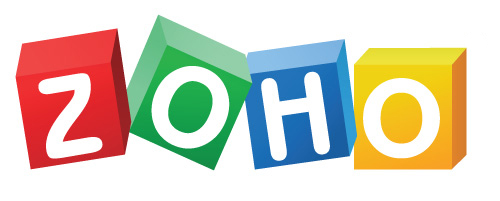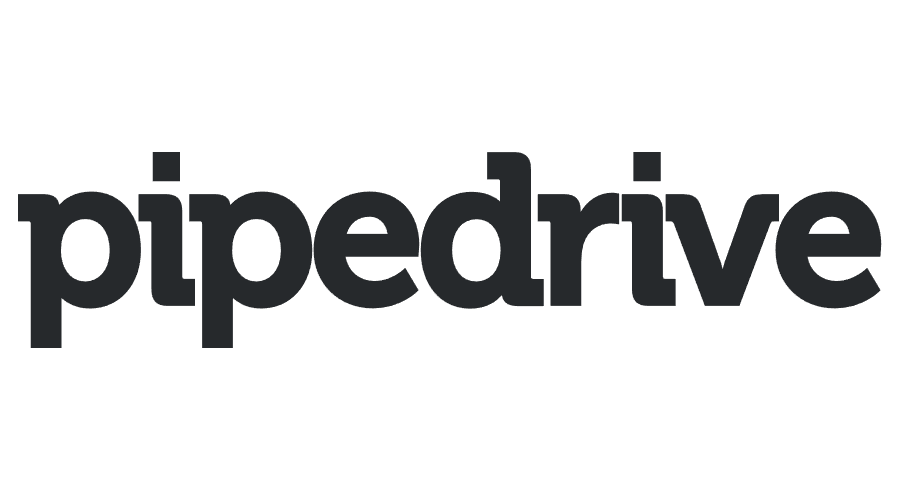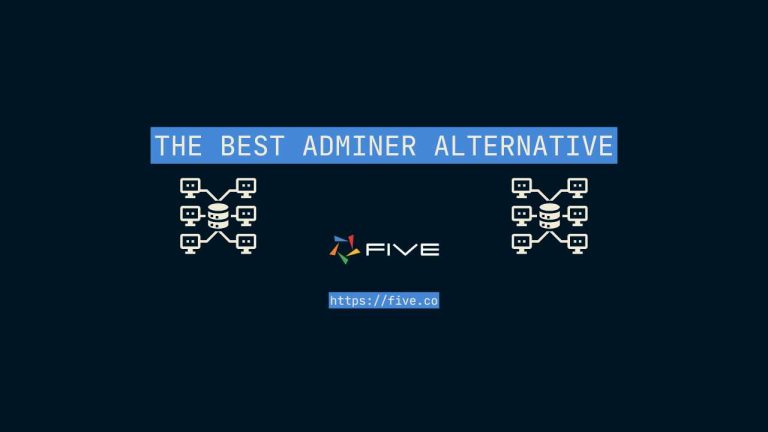The Top 5 Off-The-Shelf CRM Systems
Our Guide to Picking the Right CRM System For Your Business
Are you considering implementing a CRM system for your business? If so, you’ve probably heard of popular platforms like Salesforce, Zoho, and HubSpot. However, with so many options available, choosing the right CRM can be challenging.
Each CRM system offers different features, pricing plans, and integration capabilities, making it crucial to find the one that best fits your business needs.
In this article, we’ll explore five top off-the-shelf CRM systems—Salesforce, HubSpot, Monday.com, Zoho, and Pipedrive. We highlight what makes each one unique and how they can help businesses manage customer relationships, streamline workflows, and drive growth. Let’s dive in!
What Is a CRM System?
A CRM (Customer Relationship Management) system is a tool that helps businesses manage and organize their interactions with customers. It stores important information like contact details, purchase history, and communication preferences in one place, making it easier to keep track of relationships.
With a CRM, businesses can provide better customer service, follow up on sales opportunities, and maintain consistent communication. This leads to stronger relationships, increased customer satisfaction, and better decision-making, ultimately helping businesses grow and improve efficiency.
A CRM system also plays a vital role in managing sales teams and tracking their performance. It helps sales managers monitor the progress of leads and opportunities throughout the sales pipeline. By having visibility into the activities of individual sales reps or account managers, businesses can ensure timely follow-ups, assess sales strategies, and spot potential bottlenecks.
This transparency helps managers provide guidance, optimize team performance, and stay on top of sales goals, ensuring that nothing slips through the cracks. With a CRM, sales teams can be more aligned, efficient, and focused on closing deals and driving revenue.
Is an Off-the-Shelf CRM Solution the Ultimate Problem Solver?
When it comes to managing customer relationships, many businesses turn to off-the-shelf CRM solutions as a quick fix. These ready-made platforms promise to streamline processes, improve customer service, and boost sales. But are they truly the ultimate solution?
While these tools offer a range of pre-built features, they may not always align with the unique needs of every business. In this section, we’ll explore whether off-the-shelf CRMs are as effective as they claim to be and if they’re the best choice for your company’s growth and customer management needs.
Complexity and Learning Curve
One of the most notable cons of off-the-shelf systems are their inherent complexity. While these CRM solutions come with a robust feature set out of the box, they are designed to cater to various business needs and industries. This can lead to a steep learning curve for users, particularly for those who are new to CRM systems.
Navigating the extensive interface and mastering its functionalities can demand considerable time and training, potentially impacting user adoption and efficiency. This is a drawback, especially for smaller businesses with limited resources for extensive training programs.
Cost Considerations
While the top 5 CRM systems below offer a wide range of features, their pricing can be a deterrent for some businesses, especially startups and smaller enterprises.
The licensing costs, combined with the potential need for additional modules and customizations, can quickly escalate the overall expenditure.
This financial burden might also limit the accessibility of more advanced functionalities to businesses with tighter budgets.
Customization Challenges
Many of the top CRM systems are highly customizable which can also be a double-edged sword. While its customization options allow businesses to tailor the platform to their specific needs, this can lead to complexity in implementation.
Extensive customizations may require specialized development skills and result in intricate configurations that are harder to manage and maintain. Additionally, over-customization can potentially lead to compatibility issues with future updates and enhancements.
Moreover, you would not have any input in the product development roadmap or feature list improvements which may impact your business growth.
Integration Complexity
Despite offering an integrated ecosystem, integrating any of these CRM solutions with existing systems or third-party applications can sometimes be more complex and a lot more time-consuming.
Depending on the complexity of the integration, businesses might require technical expertise or even the involvement of third-party integration services. This can lead to additional costs and project management challenges, potentially delaying the expected benefits of the CRM system.
Support and Customer Service
While these established CRM solutions are known for their extensive offering, some users have reported challenges when it comes to customer support and responsiveness.
Getting timely assistance, particularly for complex technical issues or critical queries, might not always align with the high expectations that these platforms set through their premium pricing.
This disparity between the expected level of support and the experience can be frustrating for users seeking immediate solutions.
While off-the-shelf CRM systems can offer a quick solution for managing customer data, they may not always meet the specific needs of your business.
For businesses that require more flexibility, scalability, or tailored features, a custom or bespoke CRM can be a viable and cost-effective alternative. By building a CRM that is designed specifically for your unique processes, you ensure better alignment with your workflows, reduced inefficiencies, and greater control over how customer relationships are managed. A bespoke CRM system can grow with your business and provide long-term value that off-the-shelf solutions often can’t match.
Build Your Own CRM
Not sure whether an off-the-shelf CRM or a custom-built solution is the right fit? Schedule a free consultation with our experts. With experience helping businesses of all sizes, we can guide you toward the CRM that best suits your unique needs. Get better sales insights and start making smarter decisions for your business today!
The Top 5 Off-The-Shelf CRM Systems
1. Salesforce

Salesforce stands as an undeniable industry juggernaut. Its reputation precedes it and for a good reason. This platform has redefined how businesses manage their interactions with customers and prospects, offering a suite of tools that not only streamline but also elevate various aspects of operations.
Salesforce’s suite of tools is nothing short of comprehensive. It’s not merely a CRM system; it’s an integrated ecosystem that empowers businesses across diverse domains. From sales and customer service to marketing and beyond, Salesforce provides a unified platform that harmonizes different departments under a single umbrella.
This cohesiveness eliminates data silos and fosters cross-functional collaboration, enabling organizations to nurture their customer relationships holistically.
Salesforce: Suitability for Small- and Medium-Sized Businesses
Salesforce is a powerful CRM system, but it can be quite expensive for small and medium-sized businesses.
Its feature-limited version for small businesses starts at $25 per user per month for the basic plan, but this only includes the most essential features. To access more advanced capabilities, such as sales forecasting, reporting, and AI-driven insights, businesses must move up to higher-tier plans, which range from $80 to $330 per user per month.
Additionally, many of the add-ons Salesforce offers—like its Sales Dialer or AI tools—come with additional costs that can quickly add up. This makes Salesforce a better fit for larger organizations with a bigger budget and more complex CRM needs, rather than for small businesses looking for an affordable solution.
Salesforce Features
Let’s delve into Salesforce’s features.
Comprehensive CRM Suite: From sales and customer service to marketing and beyond, Salesforce’s comprehensive platform streamlines operations and enhances collaboration by housing all crucial aspects under one digital roof.
Integration Mastery: In a tech-driven era where integration is key, Salesforce stands out for its pre-built connectors. Its seamless integration capabilities allow businesses to connect Salesforce with a multitude of third-party applications, ERPs, marketing automation tools, and more.
360-degree Customer View: The platform aggregates data from various touchpoints, empowering sales and marketing teams with valuable insights. This comprehensive customer profile enables businesses to engage in more personalized interactions, fostering stronger relationships.
User-Friendly Interface: With its intuitive interface, Salesforce offers a user experience that’s both intuitive and accessible. This user-friendly design simplifies onboarding for new team members and minimizes the learning curve. It’s a crucial aspect that contributes to the platform’s widespread adoption. However, some users report that the initial learning curve can be steep.
2. Hubspot

At the forefront of the inbound marketing revolution, HubSpot has seamlessly extended its influence into the realm of CRM systems. It has established itself as a comprehensive solution for businesses aiming to master customer engagement.
HubSpot’s journey began as a pioneer in inbound marketing, advocating for customer-centric strategies that focus on attracting and engaging customers organically. This innovative approach transformed the way businesses interact with their audience, emphasizing value-driven content and personalized experiences. As a result, HubSpot works especially well for consumer-focused, inbound-driven companies that invest heavily into marketing initiatives.
HubSpot: Suitability for Small- and Medium-Sized Businesses
HubSpot is a popular CRM platform amongst small- and medium-sized businesses (SMBs) due to its user-friendly interface and tiered pricing structure. The free version provides access to basic CRM tools, such as contact and lead management, email tracking, and task automation, making it an excellent starting point for smaller companies without a significant budget.
However, as businesses scale, the cost of HubSpot can increase significantly with its premium plans, which are required for advanced features like reporting dashboards, marketing automation, and custom workflows. This scalability makes HubSpot well-suited for SMBs ready to invest in a more robust CRM over time, but businesses should carefully evaluate their growth plans and budget constraints before committing to the platform.
HubSpot’s Features
Let’s delve into HubSpot’s features.
User-Friendly and Intuitive: The platform is designed with the user in mind, ensuring that businesses of all sizes can seamlessly adopt and utilize its functionalities. With a user-friendly interface and intuitive navigation, the learning curve is significantly reduced, enabling teams to quickly grasp the system’s capabilities and unlock its potential.
Inbound Marketing Integration: Drawing from its roots in inbound marketing, HubSpot’s CRM seamlessly integrates with its marketing automation tools. This integration is a game-changer, allowing businesses to effortlessly transition leads generated from marketing efforts into the CRM, fostering a cohesive customer journey.
Streamlined Communication and Collaboration: HubSpot’s CRM shines in this area by providing a platform where teams can effortlessly share information, update customer interactions, and collaborate on strategies. This streamlined communication ensures that everyone is on the same page, enabling coordinated efforts and efficient customer interactions.
3. Monday.com

Monday.com isn’t a CRM system per se. Rather, the platform is known for its intuitive project management capabilities. However, the company has ventured into the world of CRM as well. This expansion marks an exciting development in the CRM landscape, promising to deliver a fresh perspective on managing customer relationships.
By venturing into the CRM landscape, Monday.com aspires to challenge traditional paradigms and bring a breath of fresh air to customer relationship management. The result is an innovative and engaging platform that aims to simplify the complexities of CRM processes.
Monday.Com: Suitability for Small- and Medium-Sized Businesses
Monday.com offers a versatile CRM solution that adapts well to the needs of small- and medium-sized businesses (SMBs). Its intuitive interface and highly customizable workflows make it a strong option for businesses looking to manage customer relationships, sales pipelines, and projects without a steep learning curve. The platform’s visual dashboards and templates are especially useful for teams that prefer a hands-on, collaborative approach to managing customer data.
For SMBs, Monday.com’s pricing is competitive, with tiered plans that scale alongside business needs. While the platform provides robust features like task automation and integrations, some advanced functionalities, such as detailed reporting and premium automations, are only available in higher-priced plans.
This flexibility makes Monday.com a great entry point for growing SMBs, but businesses should assess their long-term needs to ensure the platform remains cost-effective as they expand.
Monday.Com’s Features
Some of Monday.com’s noteworthy features include:
User-Centric Interface: Monday.com is renowned for its user-friendly interface, and its CRM component is no exception. The platform’s visually appealing and customizable boards make navigating customer interactions and data effortless.
Customizable Workflows: Users can design workflows to match their unique processes, ensuring that the CRM adapts to their business rather than the other way around. This level of customization fosters seamless integration of the CRM into existing operations.
Automation and Productivity: The platform offers automation options that eliminate manual tasks and streamline processes. This not only enhances productivity but also minimizes the risk of errors, ensuring that customer interactions are consistently smooth.
4. Zoho CRM

Zoho CRM is a versatile solution catering to businesses of all sizes, offering a comprehensive array of tools designed to simplify and optimize customer interactions.
By effectively merging automation, advanced analytics, and collaborative features, Zoho CRM provides a multifaceted platform that not only centralizes customer-related data but also empowers businesses to cultivate lasting and meaningful customer relationships.
Zoho CRM: Suitability for Small- and Medium-Sized Businesses
Zoho CRM is a popular choice for small- and medium-sized businesses due to its affordability and comprehensive feature set. It provides essential tools for managing customer relationships, including sales pipeline tracking, workflow automation, email marketing integration, and detailed reporting.
Zoho’s intuitive interface makes it accessible for teams with limited technical expertise, while its modular pricing allows businesses to scale functionality as they grow.
One of Zoho CRM’s features is its flexibility, offering customization options to align with unique business processes. Additionally, its integration with the broader Zoho ecosystem, including apps for finance, marketing, and customer support, creates a seamless experience for SMBs looking for an all-in-one solution.
However, businesses with more complex needs or larger teams may find that advanced features require higher-tier subscriptions, potentially increasing costs. Overall, Zoho CRM strikes a balance between affordability and functionality, making it an excellent starting point for growing businesses.
Zoho CRM’s Features
Some of Zoho CRM’s key features are:
Automating Customer Interactions: This feature allows businesses to streamline repetitive tasks, ensuring that valuable time is spent on higher-impact activities. Automated workflows can be tailored to match specific business processes, enhancing efficiency and minimizing the risk of human error.
Leveraging Advanced Analytics: Zoho CRM goes beyond basic data storage, offering powerful analytics tools that enable businesses to gain deep insights into customer behavior and trends. The platform’s analytics capabilities facilitate data-driven decision-making, aiding businesses in identifying opportunities, predicting customer preferences, and refining strategies for growth.
Fostering Collaboration for Enduring Relationships: The platform offers communication tools that facilitate seamless internal communication, ensuring all team members are aligned and well-informed. This collaborative environment extends to customer interactions as well.
5. Pipedrive

Pipedrive is another prominent player in the CRM system landscape, carving a niche for itself by offering an intuitive interface that streamlines and enhances the sales process. Its user-centric design and innovative features empower businesses to drive sales success with precision and efficiency.
Pipedrive’s claim to fame rests on its pioneering approach to pipeline management. A visual representation of the sales pipeline takes center stage, offering a clear and comprehensive view of each deal’s progression.
This visual aid transforms complexity into clarity, allowing sales teams to track leads, opportunities, and wins with remarkable precision. By visualizing the journey from initial contact to the final handshake, Pipedrive empowers teams to focus their efforts where they matter most.
Pipedrive: Suitability for Small- and Medium-Sized Businesses
Pipedrive is well-suited for small- and medium-sized businesses (SMBs) that prioritize sales management and pipeline tracking. Its user-friendly interface and visual sales pipeline make it easy for teams to manage leads, track deals, and stay on top of sales activities.
With automation tools, activity reminders, and AI-powered insights, Pipedrive helps SMBs streamline their sales processes without requiring extensive technical expertise.
Pipedrive’s affordability and straightforward pricing tiers make it particularly appealing for smaller businesses operating on a budget. It integrates seamlessly with many popular tools like Slack, Trello, and Google Workspace, providing flexibility for diverse workflows.
While Pipedrive excels in sales-focused features, it offers fewer advanced marketing and customer support tools compared to more comprehensive CRMs. For SMBs focused on improving their sales efficiency, Pipedrive offers an accessible and effective solution.
Pipedrive’s Features
The main features of Pipedrive are:
Visual Pipeline Management: Pipedrive takes a unique approach by placing visual pipeline management at the forefront of its offerings. The platform employs a visual representation of the sales pipeline, allowing teams to visualize the progression of deals from initial contact to closure.
Deal Tracking and Efficiency: The platform offers clear insights into deal status, potential bottlenecks, and areas requiring attention. This real-time visibility equips sales teams with actionable insights, enabling them to make informed decisions and allocate resources strategically.
Intuitive Interface for Seamless Sales: Navigating through the platform is a breeze, making onboarding swift and ensuring teams can hit the ground running. This user-focused design translates into faster adoption, reducing the learning curve and maximizing the CRM’s potential impact on sales operation


